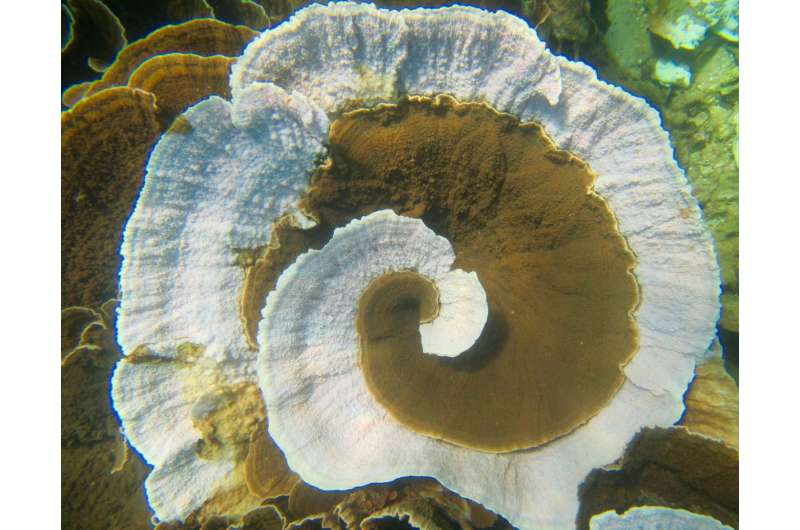Some—but not all—corals adapting to warming climate

A new WCS study reveals evidence that some corals are adapting to warming ocean waters - potentially good news in the face of recent reports of global coral die offs due to extreme warm temperatures in 2016. The study appears in the latest issue of Marine Ecology Progress Series.
The study looked at responses to extreme temperature exposures in the same reefs over time, and found less coral bleaching in 11 of the 21 coral species studied. WCS Senior Conservation Zoologist Tim McClanahan, who has been studying coral responses to climate change since the extreme temperatures of the1998 El Nino, authored the study.
The study took place in two marine national parks of Kenya. Looking at two similarly severe warming events in 1998 and 2016, McClanahan found that the number of pale and bleached coral colonies declined from 73 to 27 percent, and 96 to 60 percent in the two parks with different background temperatures. Most of this change was due to about half of the most common species that did not bleach strongly in 2016. One rare species was, however, more sensitive than in 1998.
Bleaching takes place when stressed corals discharge beneficial algae that supply energy to corals causing them to turn pale or white and often starve. Worldwide, an estimated 60 percent of corals and 90 percent of coral species experienced bleaching due to unusually warm ocean water in 2016.
McClanahan says: "This was a rare chance to study bleaching responses during two separate times with very similar conditions. Adaptation is evident for some of the more important reef building corals but, sadly, many species are not adapting, so this is a good news-bad news story."
But McClanahan warns: "Evidence for adaptation in the past is not evidence for adaptation in the future. Nevertheless, I suspect this adaptation to hot water started before my 1998 work and could have begun during the 1983 and 1988 El Niños, when coral bleaching was first observed in the region."
Said Tim McClanahan: "Despite the many caveats and interpretation of these results, this study provides one of the first response-rate estimates for many common corals at the population level. It therefore provides a basis for future studies and improving model predictions and the types of evaluations needed to address the future health of coral reefs."
Global awareness continues to grow about the immediate threats facing coral reef ecosystems, and a global commitment to address those threats. In February, at the Economist World Ocean Summit in Bali, Indonesia, the '50 Reefs' initiative was launched by the Global Change Institute of the University of Queensland and the Ocean Agency. The initiative brings together leading ocean, climate and marine scientists to develop a list of the 50 most critical coral reefs to protect, while leading conservation practitioners are working together to establish the best practices to protect these reefs.
More information: TR McClanahan, Changes in coral sensitivity to thermal anomalies, Marine Ecology Progress Series (2017). DOI: 10.3354/meps12150
Journal information: Marine Ecology Progress Series
Provided by Wildlife Conservation Society
















